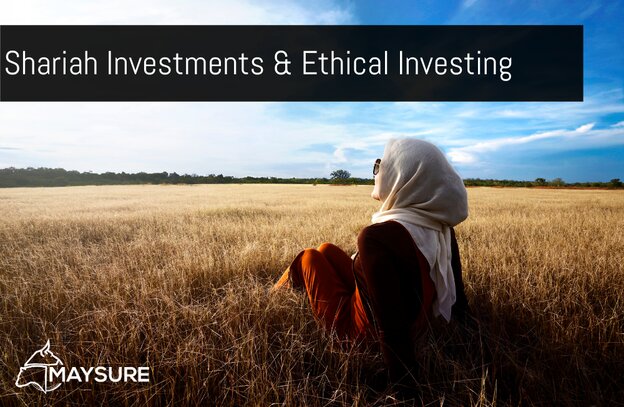Shariah Investments & Ethical Investing
At first glance, Shariah investments can appear to be quite complex. These assets contain various rules and limitations based on the Islamic faith that governs over all aspects of Muslim life.
These principles state that for any financial service or institution to be considered halaal, their products must adhere to these specific values of social responsibility set out in the Quran. These values speak to transparency, fairness, and accountability.
We are here to help you understand more about the importance of Shariah investments and ethical investing, what options are available to you, and how we can help.
Shariah Investments: An Introduction

The Kagiso Islamic High Yield Fund is just one example of an Islamic investment fund that is Shariah-compliant. This fund provides both capital stability and ethical transparency at moderate levels of risk. It also gives much-needed variety to today’s available range of Islamic finance products.
Shariah-compliant investment is different from conventional investment funds. In your traditional investment fund, investors expect to accrue interest over some time, however, in Islamic investments, interest (‘Riba’) is prohibited.
Instead, customers and banks invest and share in profits equally. The risk is shared and thus the impact is lessened, which makes these funds far less volatile than your ordinary investment fund.
It’s important, as an Islamic and Muslim investor, to make use of Shariah-compliant companies when establishing your Shariah portfolio. These companies must adhere to the standards set out by the Accounting and Auditing Organization for Islamic Financial Institutions (AAOIFI). This body ensures that Islamic investment products maintain Shariah values across all their financial services.
Contact us to find out how you can ensure Shariah compliance throughout all your investments.
Shariah Investments: Importance

As this industry continues to grow and develop, it becomes vital to share with all of our clients the value and benefits of Shariah investments. In recent times, these funds have gained popularity with other groups outside of the Muslim faith. This is because of a recent surge in the demand for ethical products.
Groups of all faiths, and non-faiths alike, share similar values with Muslim investors when it comes to seeking socially responsible investment solutions, which adhere to environmental, social, and governance (ESG) criteria.
This is what makes Shariah-compliant investing appealing for Muslim investment and beyond. It’s not only beneficial to the Muslim community, but also the rest of the modern world as it caters to these shifts in moral codes and spiritual values.
This is why ethical investing is becoming more prevalent and sought after. Ethical investments provide investors with the ability to generate profits from their invested funds while still ensuring that their moral compass is pointing in the right direction!
Shariah Investments: Requirements

For a fund to be considered Shariah-compliant, it must adhere to the rules set out by the AAOIFI (as guided by the Islamic faith). This organisation helps to ensure the ‘standardisation and harmonisation of international Islamic finance’. It is a guiding body that tries to create uniformity across all Islamic financial sectors.
Within each investment organisation, there must exist a Shariah Supervisory Board, which directs and monitors all Shariah-compliant funds. This ensures financial products are lawful for Muslim consumers.
These boards and regulators allow investors from the Islamic faith to better screen potential new investment opportunities, ensuring these match the rules of their faith.
Shariah Investing: Restrictions

The Shariah supervisory boards and regulators also regulate financial product restrictions and allowances.
Products are not considered Shariah-compliant if they derive majority income from:
- Alcohol, tobacco, and pork
- Production of weapons of mass destruction
- Conventional financial services and leisure/media
- Pornography and gambling
Shariah-compliant products include:
- Equity funds
- Real estate funds
- Commodity funds
- Bonds
The restrictions are wide-ranging and subtle in some cases. As a result, the lines can blur between what is considered Shariah-compliant and what is not.
It can be a confusing experience to try and navigate Shariah compliance and Islamic investment products alone. As a Shariah-compliant company, our financial advisors are highly knowledgeable about Shariah investing. We can assist you to secure the right funds for your ethical requirements.
Please do not hesitate to get in touch to find out about Shariah investments and ethical investing.
+27 11 839 2302
info@maysure.za.com


